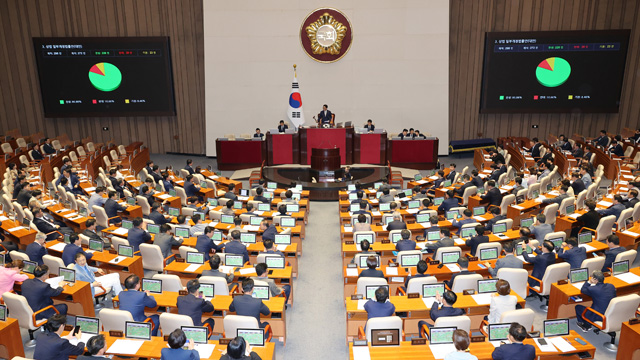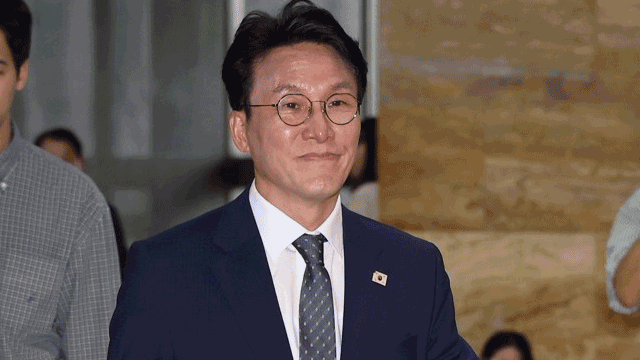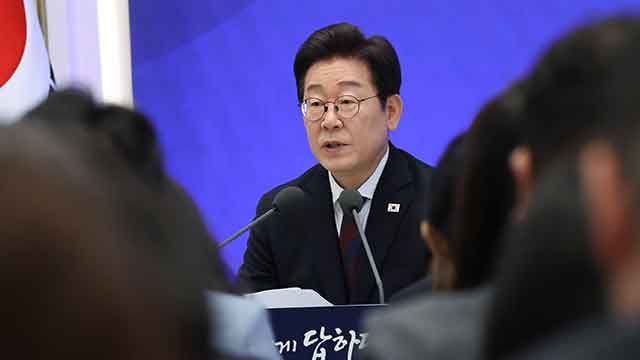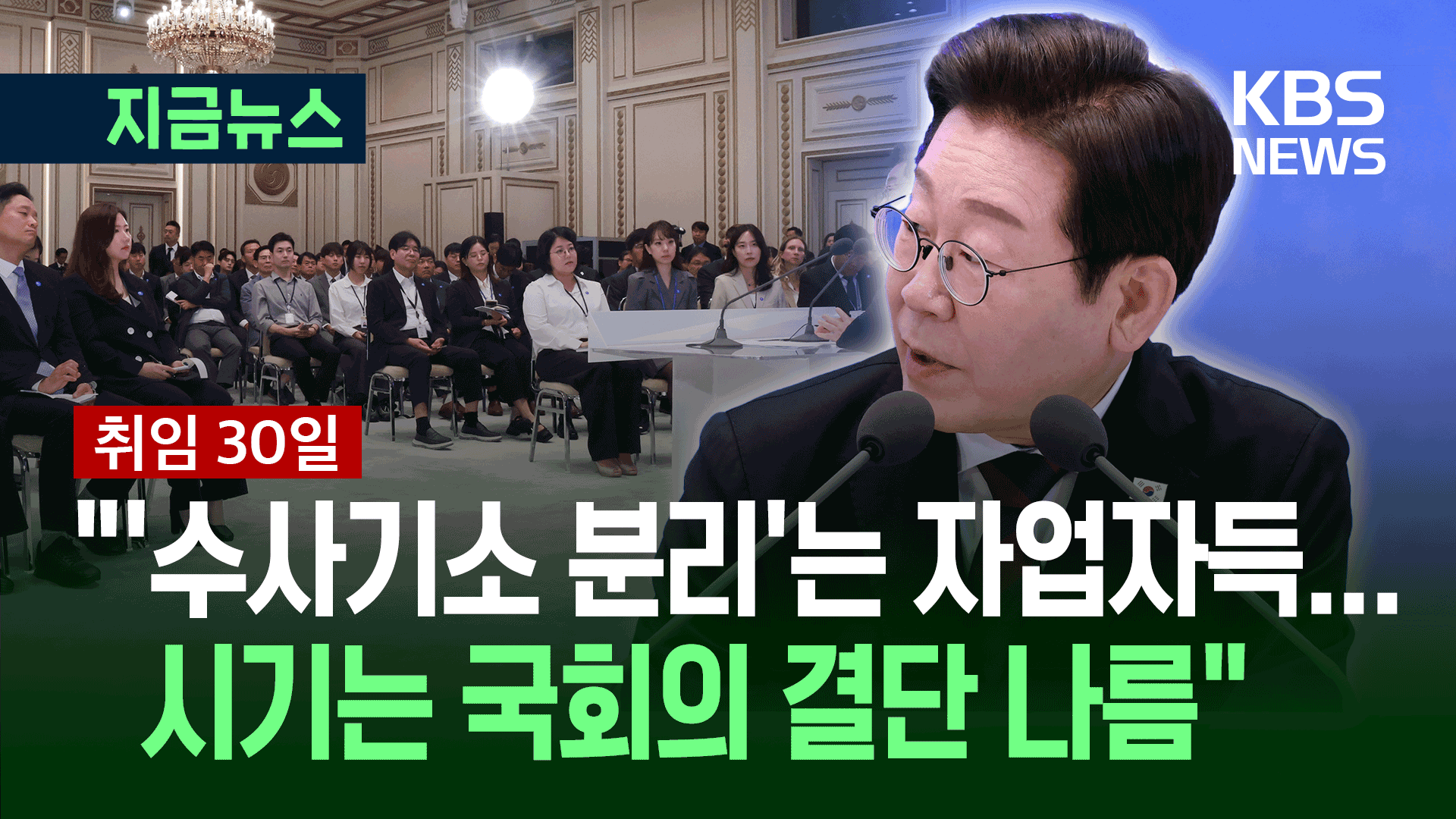[News Today] INHERITANCE TAX TO BE REVAMPED
입력 2025.03.13 (15:38)
수정 2025.03.13 (15:39)
읽어주기 기능은 크롬기반의
브라우저에서만 사용하실 수 있습니다.
[LEAD]
The government is pushing for a fundamental overhaul of the inheritance tax system. This marks the first major revision since its introduction in 1950. The plan isn't just about adjusting rates or exemptions but transforming how taxes are calculated at the core.
[REPORT]
An apartment in Seoul's Jamsil area which is a promising site for future reconstruction.
A man in his 80s died two years ago and subsequent inheritance unfolded as follows.
The inherited wealth was 2.3 billion won, some 1.6 million dollars, calculated by subtracting debt and funeral costs from the apartment value of 2.6 billion won.
The heirs were the spouse and three children.
In accordance with the taxation-first system, inheritance tax of some 240 million won or 165,500 dollars was first paid off.
Of the remaining assets, the spouse inherited around 800 million won and the children 500 million each.
As such, the current 'estate taxation' method is 'tax first, inheritance later.'
A revised plan seeks to change this to an 'estate acquisition tax' involving 'first inherit, tax later.'
By this scheme, the family above inheriting the property under the same conditions is expected to pay a smaller inheritance tax of 170 million won or some 117-thousand dollars.
The payment method will also differ.
Currently, the full inheritance tax must be paid by the whole family together.
This notion of joint responsibility has much room for family disputes.
Go Gyung-hee/ Tax accountant
There can be an uncooperative heir. If that person refuses to pay, bills will go to other inheritors while all of them become delinquents.
Various tax deductions will also be simplified.
The deduction limit for the spouse is set at one billion won and direct descendants and ascendants 500 million won.
No matter how few the heirs, personal exemptions will be guaranteed for up to one billion won or some 689 thousand dollars.
This figure is considered the tax exemption benchmark.
The government will submit this revised bill to parliament around May with the goal to implement the new scheme by 2028.
The ruling People Power Party supports the move while the main opposition Democratic Party called it a tax cut for the rich.
Therefore further discussions are likely to take place even though the two sides have nearly agreed on raising the tax deduction limit.
■ 제보하기
▷ 카카오톡 : 'KBS제보' 검색, 채널 추가
▷ 전화 : 02-781-1234, 4444
▷ 이메일 : kbs1234@kbs.co.kr
▷ 유튜브, 네이버, 카카오에서도 KBS뉴스를 구독해주세요!
- [News Today] INHERITANCE TAX TO BE REVAMPED
-
- 입력 2025-03-13 15:38:27
- 수정2025-03-13 15:39:26
[LEAD]
The government is pushing for a fundamental overhaul of the inheritance tax system. This marks the first major revision since its introduction in 1950. The plan isn't just about adjusting rates or exemptions but transforming how taxes are calculated at the core.
[REPORT]
An apartment in Seoul's Jamsil area which is a promising site for future reconstruction.
A man in his 80s died two years ago and subsequent inheritance unfolded as follows.
The inherited wealth was 2.3 billion won, some 1.6 million dollars, calculated by subtracting debt and funeral costs from the apartment value of 2.6 billion won.
The heirs were the spouse and three children.
In accordance with the taxation-first system, inheritance tax of some 240 million won or 165,500 dollars was first paid off.
Of the remaining assets, the spouse inherited around 800 million won and the children 500 million each.
As such, the current 'estate taxation' method is 'tax first, inheritance later.'
A revised plan seeks to change this to an 'estate acquisition tax' involving 'first inherit, tax later.'
By this scheme, the family above inheriting the property under the same conditions is expected to pay a smaller inheritance tax of 170 million won or some 117-thousand dollars.
The payment method will also differ.
Currently, the full inheritance tax must be paid by the whole family together.
This notion of joint responsibility has much room for family disputes.
Go Gyung-hee/ Tax accountant
There can be an uncooperative heir. If that person refuses to pay, bills will go to other inheritors while all of them become delinquents.
Various tax deductions will also be simplified.
The deduction limit for the spouse is set at one billion won and direct descendants and ascendants 500 million won.
No matter how few the heirs, personal exemptions will be guaranteed for up to one billion won or some 689 thousand dollars.
This figure is considered the tax exemption benchmark.
The government will submit this revised bill to parliament around May with the goal to implement the new scheme by 2028.
The ruling People Power Party supports the move while the main opposition Democratic Party called it a tax cut for the rich.
Therefore further discussions are likely to take place even though the two sides have nearly agreed on raising the tax deduction limit.
이 기사가 좋으셨다면
-
좋아요
0
-
응원해요
0
-
후속 원해요
0















이 기사에 대한 의견을 남겨주세요.